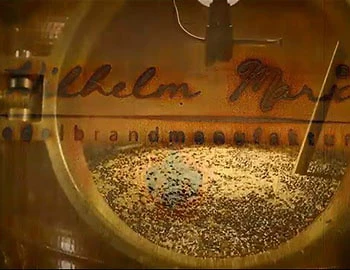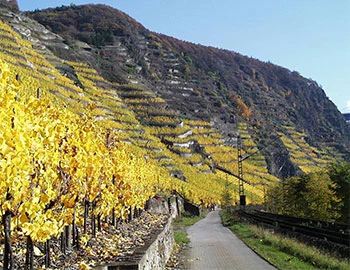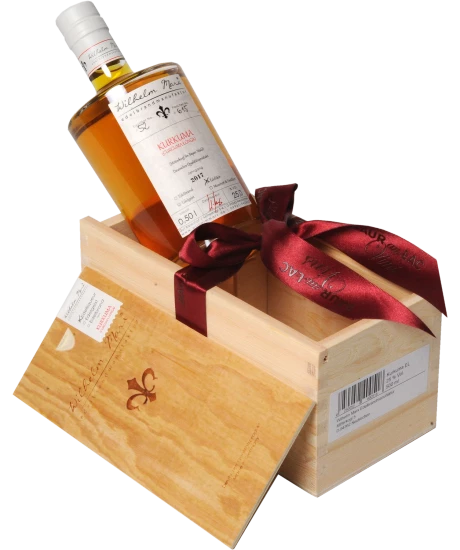Kurkuma Edelliqueur 2017
Edelbrandmanufaktur Wilhelm Marx, Deutschland, 500 ml

| Producer: | Wilhelm Marx |
| Origin: | Germany |
Description
The turmeric needed to make this liqueur comes directly from Thailand and is delivered immediately to the brandy factory, fresh, in a closed cold chain. There it is processed and prepared as soon as it arrives, without adding flavours, colourings or preservatives. Such is the making of this liqueur with its unmatched taste and intense colour!
Attributes
| Origin: | Germany |
| Label: | Certified organic or biodynamic wine with no declaration on the label |
| Volume: | 25.0 % |
Wilhelm Marx
The small, family-owned fruit eau-de-vie distillery Wilhelm Marx is located in the idyllic Bavarian Forest between Regensburg and Bodenmais, near the Great Arber, not far from the Czech border. To be precise, the distillery is located in the picturesque climatic health resort of Neukirchen at the typically Bavarian Gut Bärenhof. A natural oasis of unparalleled beauty.
In 2012, Wilhelm Marx founded his fruit eau-de-vie distillery, and has completely devoted himself to his passion ever since. His distillery produces fine fruit eau-de-vie and liqueurs that have quickly garnered international acclaim. Wilhelm Marx started out working in the international contact lens business and travelled to Asia several times a year. His great passion for Asia is also reflected in his product line. For example, he imports the highest-quality ginger, turmeric and lemongrass directly from Thailand. The freshness and processing of the ginger give his GINGER No. 1 and GINGERLIQ their characteristic fruitiness, spiciness and palate-pleasing tingle. As early as November 2014, the Marx family took part in the International Wine & Spirits Fair in Hong Kong – to huge success! The ginger products GINGERLIQ and GINGER No. 1 in particular met with great interest. But native Bavarian fruits such as rose hips, blackthorn, quince and blackberries are also processed into exquisite delicacies.

Germany
Germany – Into the elite the hard way
Sitting in the heart of Europe, the hilly, lake-dotted landscape of Germany provides ideal, fertile soil for the most diverse vine varieties. From Albalonga to Zweigelt, over 140 different grape varieties are grown on about 100,000 acres, cared for by nearly 50,000 vintners. Most of these vintners are young, modern, internationally trained, inquisitive and urbane. It is hardly surprising, then, that German wine has a good reputation well beyond the country's borders.



